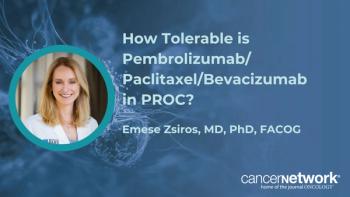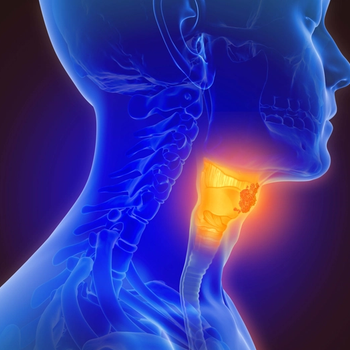
Oncology NEWS International
- Oncology NEWS International Vol 11 No 4
- Volume 11
- Issue 4
Alemtuzumab Produces Durable Responses in CLL
ORLANDO-Alemtuzumab (Campath-1H), a humanized monoclonal antibody that binds to CD52, produced a response rate of 29% (including 7% complete responses) in heavily pretreated patients with CD52-expressing hematologic malignancies.
ORLANDOAlemtuzumab (Campath-1H), a humanized monoclonal antibody that binds to CD52, produced a response rate of 29% (including 7% complete responses) in heavily pretreated patients with CD52-expressing hematologic malignancies.
In a poster presentation at the 43rd Annual Meeting of the American Society of Hematology (abstract 1541), Alessandra Ferrajoli, MD, described this finding from a phase II trial of alemtuzumab in 68 patients. Dr. Ferrajoli is assistant professor in the Department of Leukemia, M.D. Anderson Cancer Center.
Dr. Ferrajoli said that the main study objective was to determine the efficacy of alemtuzumab in patients with hematologic malignancies expressing CD52 who have failed conventional treatment or whose predicted response to standard therapy was less than 20%.
The investigators treated 41 patients who had refractory B-cell chronic lymphocytic leukemia (B-CLL), 1 who had T-CLL, 3 who had B-cell prolymphocytic leukemia (B-PLL), 9 with T-PLL, 6 with cutaneous T-cell lymphoma, 1 with hairy cell leukemia, 3 with mantle cell lymphoma, 2 with T-cell large granular lymphocytic leukemia (T-LGL), and 2 with peripheral T-cell lymphoma. The median age was 60 years; 53 patients were male and 15 female; the median number of prior treatments was three.
Alemtuzumab was given IV at 3 mg on day 1, 10 mg on day 2, 30 mg on day 3, and then 30 mg three times a week for 11 additional doses. All patients received prophylactic trimethoprim-sulfamethoxazole and valacyclovir (Valtrex).
Response Rate
The overall response rate was 29%, including complete response (CR) in five patients (7%). This included two with B-CLL and three with T-PLL. The median duration of CR was 12 months.
Fifteen patients (22%) achieved a partial response (PR). This included nine with B-CLL, two with B-PLL, two with T-PLL, and two with cutaneous T-cell lymphoma. The median duration of PR was 5 months.
Two of the CR patients and all 15 of the patients with PR have durable, ongoing responses. Responses occurred in peripheral blood (72%: 36% CR, 36% PR); bone marrow (69%: 41% CR, 28% PR); lymph nodes (36%: 23% CR, 13% PR); and spleen (52%: 36% CR, 16% PR).
With a median follow-up of 22 months (range, 1 to 27 months), 30 patients (44%) remain alive, including 14 of the 20 responders (70%) and 16 of the 48 nonresponders (33%).
Prolonged lymphopenia was the most significant hematologic effect: transient grade 3 or 4 neutropenia in 3% of patients and transient grade 3 or 4 thrombocytopenia in 49%. Infectious complications included herpes simplex virus reactivation (18%), cytomegalovirus reactivation (26%), pneumonia (22%), sepsis/bacteremia (29%), and systemic fungal infections (10%).
"Alemtuzumab is active as a single agent in CD52-positive lymphoproliferative disorders and warrants further investigation in previously untreated patients," Dr. Ferrajoli concluded.
Articles in this issue
almost 24 years ago
Virtual Shared Specimen Resource ‘Essential’almost 24 years ago
DHA Conjugate Increases Paclitaxel Uptake by Tumor Cellsalmost 24 years ago
Letrozole Superior to Tamoxifen in Metastatic Breast Canceralmost 24 years ago
S-8184 Paclitaxel Emulsion Promising in Phase I Studyalmost 24 years ago
HIV+ Veterans Have Higher Rates of Unusual Cancersalmost 24 years ago
Online Breast Cancer Support Groups Beneficialalmost 24 years ago
Survival Benefit With Capecitabine/Docetaxelalmost 24 years ago
FDA Approves Zometa for Cancer-Related Bone ComplicationsNewsletter
Stay up to date on recent advances in the multidisciplinary approach to cancer.










































